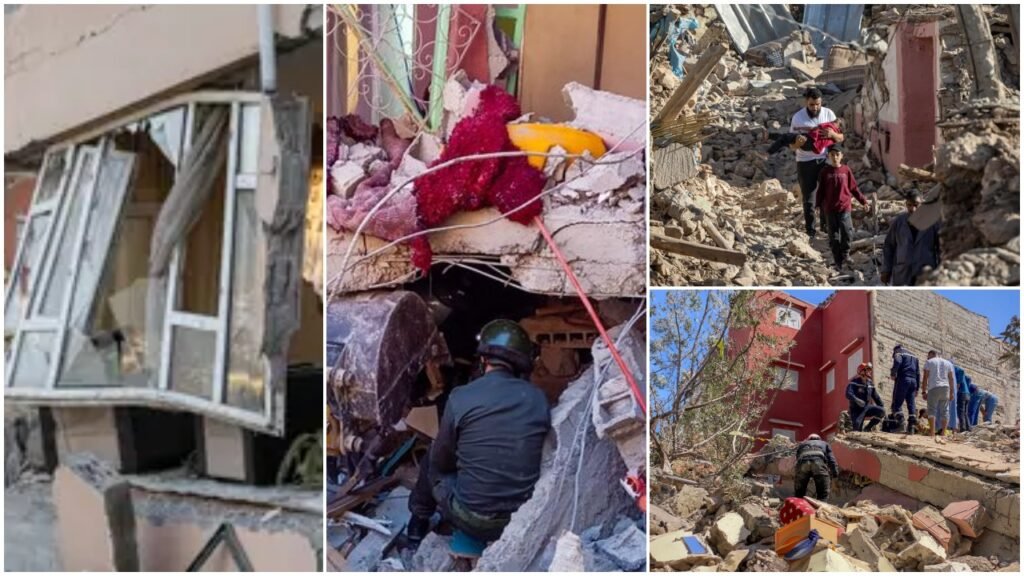
New Delhi: A massive earthquake with a magnitude of at least 6.8 hit Morocco on Friday night, September 8, 2023, near the city of Marrakesh, the largest such quake to hit the country in decades. The quake was followed by a 3.9-magnitude aftershock on Sunday morning. The quake’s epicenter was located in the High Atlas mountain range, about 72 kilometers (44.7 miles) southwest of Marrakesh, a city of about 840,000 people. The quake was felt as far north as Casablanca.
The earthquake has killed more than 2,100 people and injured more than 1,400, according to the latest official figures. More than 300,000 people have been affected in Marrakesh and surrounding areas, according to the World Health Organization. The death toll is expected to rise as rescue workers search for the missing in hard-to-reach villages and through the rubble of Marrakesh’s old city.
The earthquake has caused widespread damage to buildings and infrastructure, especially in the areas near the Atlas Mountains. Some towns have been completely destroyed, with almost all the homes in an area of the village of Asni damaged. Hundreds have died in the province of Al Haouz and nearly 200 in the southwestern Moroccan city of Taroudant. Historic sites have also been damaged, such as the famous red walls representing the old city’s boundary and the Kutubiyya mosque in the old city, which dates back to the 12th century.
The earthquake is Morocco’s deadliest since 1960 when a quake killed more than 12,000 people. Earthquakes of this size in the region are uncommon, but not unexpected, according to the US Geological Survey. It noted that nine quakes with a magnitude of 5 or higher have hit the area since 1900, however, none of them have had a magnitude higher than 6.
Morocco’s leader, King Mohammed VI, has called upon the military to conduct search and rescue efforts, and other nations including France, the United Arab Emirates, and Turkey have pledged their support to the operation. However, some rescue teams have complained that the government approval process is too slow as time to find survivors rapidly dwindles.
Survivors of Morocco’s deadliest earthquake in more than six decades struggled to find food and water on Sunday as the search for the missing continued. Many people slept in the streets of Marrakesh for a third straight night as soldiers and other international aid teams carried on their rescue operation into the remote mountain towns in trucks and helicopters.

The earthquake has also raised concerns about the impact of climate change on seismic activity. Bill McGuire, professor emeritus of geophysical and climate hazards at University College London told the Associated Press that “the frequency and intensity of earthquakes are likely to increase as a result of global warming” due to factors such as melting ice sheets, rising sea levels, and changing rainfall patterns.
The Moroccan government has declared three days of national mourning for the victims of the earthquake and urged people to donate blood and money to help with relief efforts. The international community has also expressed its solidarity and condolences to Morocco. UN Secretary-General Antonio Guterres said he was “deeply saddened” by the tragedy and offered his full support to Morocco. US President Joe Biden said he was “heartbroken” by the loss of life and pledged to provide any assistance needed by Morocco. French President Emmanuel Macron said he was “close” to Morocco and its people and announced that he would visit Morocco soon to show his support.








































